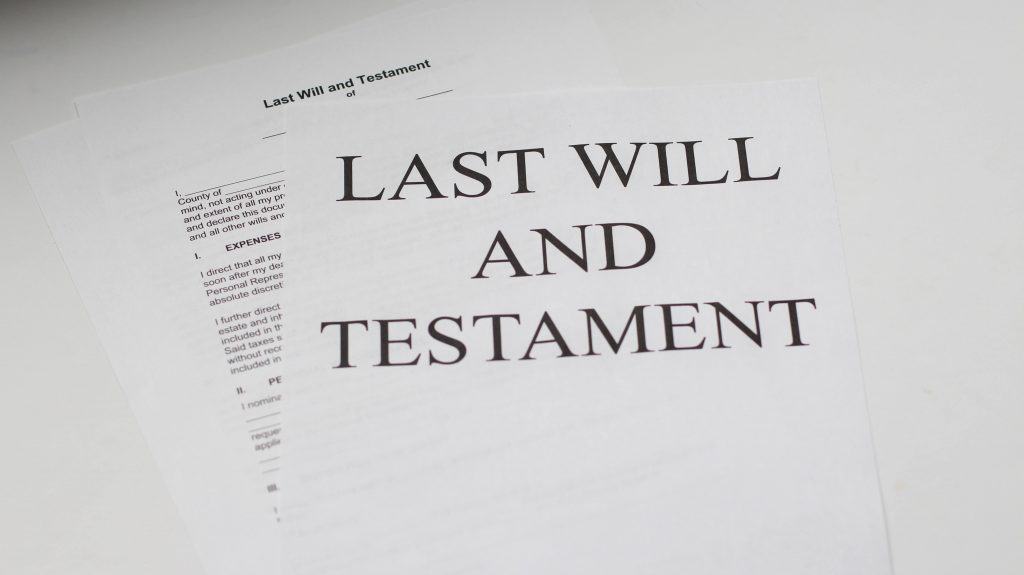Many of my clients ask why a person needs an estate plan. Especially if a person is not married and not in a common-law relationship, has no children, and thinks that does not have many assets. The truth, however, is that each of us has assets. A single chequing account at a bank where you deposited your allowance since you were young is still an asset. Consequently, each of us needs an estate plan. Certainly, a person may not have many assets and a simple estate plan is sufficient, but you still need one.
Goals of an estate plan
A proper estate plan can help you:
- Arrange your affairs to minimize the burden on your family
- Ensure that your assets are distributed to beneficiaries of your choice (instead of according to the scheme that the government has put in place)
- Facilitate efficient administration of your estate
- Consider tax consequence on your death (and consider whether there are sufficient assets to fund the tax obligations)
- Consider applicable probate fees
- Provide your wishes for guardianship of minor children (if applicable)
- Provide for administration of inheritance funds for minor children (if applicable)
The above are only some of the main points on how an estate plan can help you achieve your goals. There are many other considerations or points that can be discussed with a lawyer and other professional advisors to help you achieve the desired results.
Pieces of the estate plan puzzle
Did you think that estate planning was all about preparing and signing a Will? Don’t worry, you are not alone.
I don’t have specific statistics or data but it seems that the majority of my clients think exactly that at our estate planning meeting. It is true that the estate planning does often revolve around preparing a Will, but forgetting to consider various issues that may be involved and address other documents can have costly consequences for some.
Every person should consider the following basic documents as part of an estate plan:
- A Will
- A Power of Attorney
- A Health Care Directive (also sometimes referred to as a Health Care Proxy or a Living Will)
So, in addition to the Will, I always recommend that you also have a Power of Attorney and a Health Care Proxy in place.
Depending on your circumstances, the following may also need to be part of your estate plan:
- Estate Freeze
- Trust Declaration
- Insurance Declaration (if an insurance policy is to be distributed separately from estate assets for asset protection, probate minimization or other reasons)
- Joint Ownership Declaration
- Gift Declaration
A Will
A Will is an important part of an estate plan. If you die without a Will, the provincial law (and not you) will govern the distribution of all your assets.
If a person dies without a Will in Manitoba, The Intestate Succession Act (Manitoba) will govern the distribution of your assets. The actual framework for distribution will depend on various factors. Some of these include whether or not you had a spouse or common-law partner at the time of death, whether or not you had children at the time of death, and whether children involved are of both of you and your spouse or common-law partner.
Another burden placed on the family when a person dies without a Will is that no one has the immediate power to represent the estate or deal with estate assets. Only when an estate administrator (also often called estate trustee or legal representative) has been appointed by the court, which in many cases takes considerable time, will the estate have a legal representative who can act on its behalf. If you have a Will, however, the executor appointed in the Will has the legal authority to represent the estate and deal with its assets immediately after death.
Considerations for the Will
In my view, at least the following should be considered for a Will (although not necessarily in the order listed):
- Appointment of executors
- Distribution of personal effects
- Whether you need to consider a designation for a life insurance policy
- Whether you need to consider a designation for any registered plans
- Whether you want to provide any specific gifts to anyone – charity, friend, specific family member, etc.
- Distribution of the balance of the assets (after payments of taxes and other obligations, and specific gifts)
- If minors involved, your wishes regarding appointment of guardians
- If minors involved, your wishes regarding when such minors should receive inheritance appointment of guardians
- Whether there are any special circumstances (for example, second marriage and there is a prenuptial agreement in place)
This is not meant to be an exhaustive list and there may be additional provisions that will need to be considered based on your particular circumstances.
You may also have obligations, by law, to provide for certain individuals – i.e. you may have a spouse, dependent children, obligations in respect of spousal support payments from a prior relationship, etc. Yes, it is your assets but you still need to keep in mind your obligations.
A Power of Attorney
A Power of Attorney is a legal document that authorizes another person to act on your behalf. A Power of Attorney typically deals with legal, financial, and property decisions.
Concerned about signing a Power of Attorney and giving someone immediate authority to deal with your affairs? That is why we have Springing Powers of Attorney. A springing Power of Attorney means a Power of Attorney which comes into effect on a specific date or occurrence of a specific event. The person making the power of attorney (often referred to as the donor) can designate who can declare that the ‘specific event’ has occurred. Most often, a springing Power of Attorney will be prepared to indicate that it only comes into effect on mental incompetence – i.e. upon one or more medical doctors making a declaration that the person (i.e. the donor) has lost capacity to take care of person’s own affairs.
If you become mentally incompetent without a Power of Attorney in place, no one has the authority to act on your behalf in respect of your affairs. Yes, that means not even your spouse or common-law partner or parent. If you do not have a Power of Attorney, it may be necessary to file a court application to obtain a committeeship order (which is referred to as a guardianship order in some provinces) to authorize someone to act on your behalf, which is an expensive and at times lengthy process.
A Health Care Directive or Living Will
A Health Care Directive is a legal document that authorizes another person to act on your behalf in respect of health and medical care when you cannot speak for yourself. This document does not deal with any legal, financial, or property decisions. You can also provide specific instructions in a Health Care Directive regarding the type of health care treatment that you would like to receive.
Next Steps
Creating an estate plan does not have to be complicated, but it does take some time and effort. Generally, you should take the following steps:
- Gather information on assets and liabilities
- Consider estate planning objectives
- Determine how to achieve estate planning objectives based on available assets
- Consider and select the right person(s) to carry out the administration of the estate
- Consult with appropriate advisors to implement the estate plan
- Review the estate plan every 3-4 years or anytime there are significant changes in your life or anyone involved in the estate plan (whether as a beneficiary or executor)
Conclusion
Estate planning is important. Even if you are single, with no children, and think you have negligible assets. Is it fun? No (at least not for most). But planning ahead will definitely lessen the burden on your loved ones and put you in control of what happens with your assets.
Can you prepare a Will or other estate planning documents without a lawyer or other advisors?
Yes.
Is it worth it?
In my view – NO!
I often joke with clients that you will spend the money on your estate plan at some point. The choice is whether (a) you spend it now and arrange your affairs the way you want, or (b) your will burden your family with disarray and your estate will pay a lawyer later to deal with various issues.
None of us know when ‘our time’ will come. Don’t put it off your estate planning. Plan now and help lessen the burden on your family.
If you need help, please do not hesitate to contact me to discuss your circumstances. You can find my information on the CONTACT page or CLICK HERE to schedule a specific time to chat.


